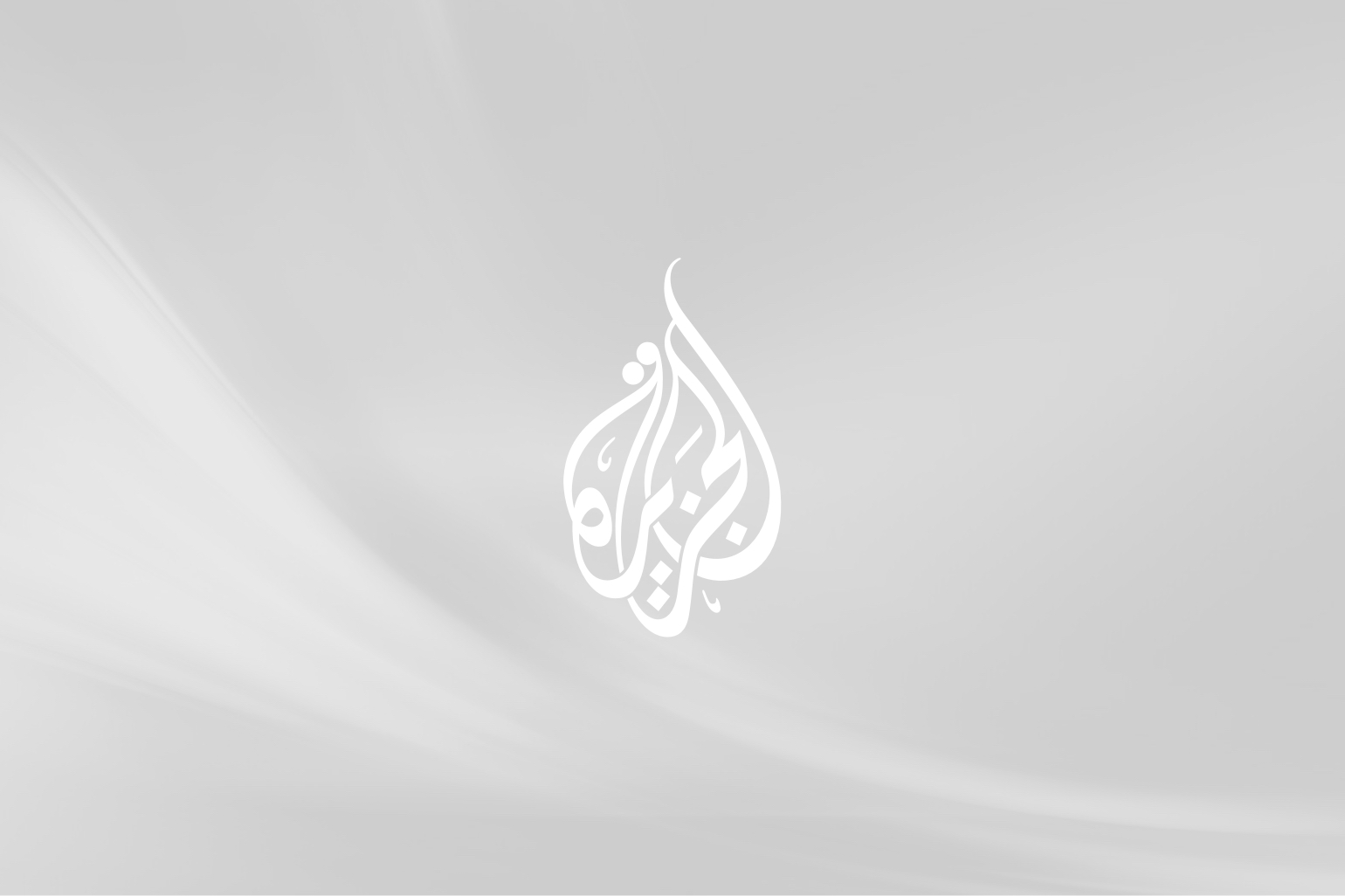Will the US attack Iran?
The consensus among experts is that any proxy war, invasion or missile strike on Iran would be a costly mistake, but opinion is divided as to whether it could happen anyway.

An overwhelming view among foreign policy analysts and experts on Iran is not just that there is no international support for an attack, but that the US lacks the necessary resources to deal with its consequences.
However, a determined group within the US administration argue that Iran is a regional and global threat and that the use of air and special operations attacks against its suspected nuclear facilities can stop the ruling clerics in Tehran acquiring warheads.
Speaking to Aljazeera.net on Wednesday, Iran expert and political analyst Dr Laleh Khalili of SOAS University in London said the only way the US could contemplate a strike on Iran would be by pulling all troops out of Iraq and bringing in national conscription.
“Otherwise, Washington would be looking at getting hit in Iraq and Afghanistan, perhaps an increase in support for Hizb Allah in Lebanon or even retaliatory attacks on the US and Israel.
“But the unpopularity of forcing US citizens to join the army would be deeply unpopular and would not bode well for Bush to back his brother’s bid to become president next,” she said.
No missile option
Khalili also rules out any Israeli-like strike on Iran’s nuclear facilities achieving anything like the results of the Osiraq strike on Iraq in 1981.
“Iran’s nuclear sites … assuming we know where they all are … are dispersed and well-protected, some are also likely to be located near to civilian population centres,” she said.
Meanwhile, some analysts argue that rather than sabre-rattling, the White House should be looking at how to improve relations with Tehran.
 |
|
Most of Iran’s nuclear facilities |
In an interview with the political correspondent of Fars News Agency on Monday, Professor Reza Aslan of Iowa University said that the US should rather be courting Iran’s help in restoring stability in Iraq.
“Attacking Iran will turn the majority of Iraqi Shia Muslims against America and this would cause a tragic and disastrous situation,” he said.
But despite a much greater national cohesion in Iran than was evident in a sanctions-weakened Iraq, and the completely different terrain that would make any conventional war a different proposition, some analysts argue that the US will still probably attack.
Attack of madness
London-based analyst Dr Ali Ansari says all the arguments warning against a military solution would be fine – “if we were dealing with rational people”.
But the Royal Institute of International Affairs analyst says the neo-conservative element in Washington contains irrational ideologues who have become even more powerful in Washington since President George Bush’s re-election.
“They will continue on their crusade. These people are not of this planet. They still actually think that invading Iraq was a good idea,” said Ansari. “I think a missile strike on Iran in 2005 is highly likely.”
Policy battle
However, the analyst added that the numerous reports on US-Iran tensions – such as a Seymour Hersh article in The New Yorker on Monday are more indicative of a civil war in the Pentagon than in the Middle East.
“I do not believe that US intelligence agents have been trampling round Iran taking pictures of suspicious-looking buildings. After all, intelligence gathering has not been one of the US’ strong points to date,” he added.
|
“These people are not of this planet. They still actually think that invading Iraq was a good idea” Dr Ali Ansari, |
And with few moderates left in the second Bush administration to argue that there is no military option, Ansari concludes the neo-conservatives are likely to win the policy and media battles.
One senior administration official involved in developing Iran policy told the British newspaper The Guardian on Tuesday that “at some point the costs of doing nothing may just become too high.
“In Iran you have the intersection of nuclear weapons and proven ties to terrorism. That is what we are looking at now.”
Terrorist heroes
But in an ironic twist, groups previously labelled terrorist by the Bush administration are suddenly appearing not so terrorist-like.
The Pentagon was recently contemplating the infiltration of members of the Iranian rebel group Mujahedin-e-Khalq (MEK) over the Iraq-Iran border, to collect intelligence.
The MEK has been declared a terrorist group by the state department, but a former Farsi-speaking CIA officer, quoted by the British newspaper, said he had been asked by neo-conservatives in the Pentagon to travel to Iraq to oversee “MEK cross-border operations”.
The group, based at Camp Ashraf, near Baghdad, was under the protection of Saddam Hussein, and is under US guard while Washington decides on its strategy.
Proxy war
And though analysts who spoke to Aljazeera said MEK by themselves were too small a group to be able to fight a proxy war, other groups are also being considered.
Enter the Alliance for Democracy in Iran (ADI). Taking shape over the past three years, the ADI office is strategically located in the heart of the capital’s thinktank quarter.
 |
|
Iranian opposition tanks 100km |
Activists described it as an opposition umbrella group that would act as a “clearing house” for US taxpayers’ money dedicated to advancing the cause of democracy.
“Our true purpose is to empower the Iranian people, to change the regime to become more democratic,” explained Kamal Azari, its president told Britain’s Financial Times newspaper.
Its aim is a referendum on whether to restore the monarchy under the ousted Shah’s son, Reza Pahlavi, who lives in Virginia. In other words, to put the clock back and return US-Iran relations to the way they were before the Islamic revolution in Iran.
Proposed legislation
Meanwhile in Congress, the proposed Iran Freedom and Support Act, sponsored by senators Rick Santorum and John Cornyn, calls on the administration to back “regime change” and promote and fund just such alliances with Tehran opposition groups.
A similar bill in the House of Representatives, proposed by Ileana Ros-Lehtinen, seeks to strengthen existing legislation that would penalise foreign companies investing in Iran’s energy sector.
The acts draws inspiration from the 1998 Iraq Liberation Act – which enshrined regime change. It has the backing of the American Israel Public Affairs Committee, a powerful pro-Israel lobby group.
And proposed multi-million dollar funding for Iranian opposition activities has already been inserted by Congress in the 2005 budget on the initiative of Senator Sam Brownback, a Kansas Republican.
Whether or not there is a military option open to the US, it seems – at least for some groups in Washington – that preparing for war is as easy as changing the ‘q’ in Iraq to an ‘n’.